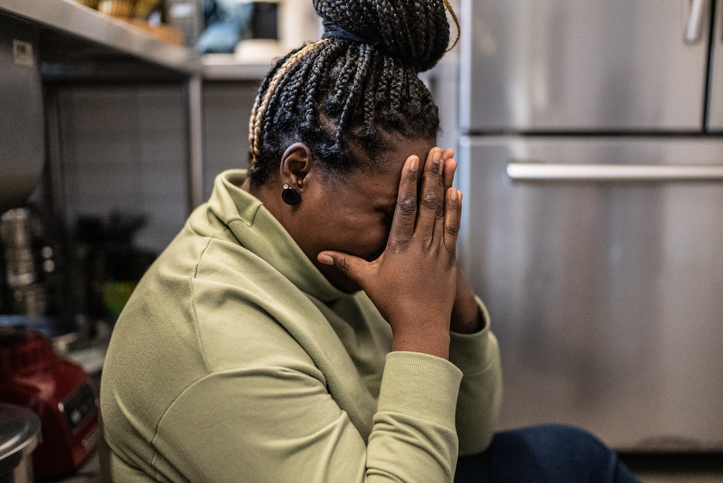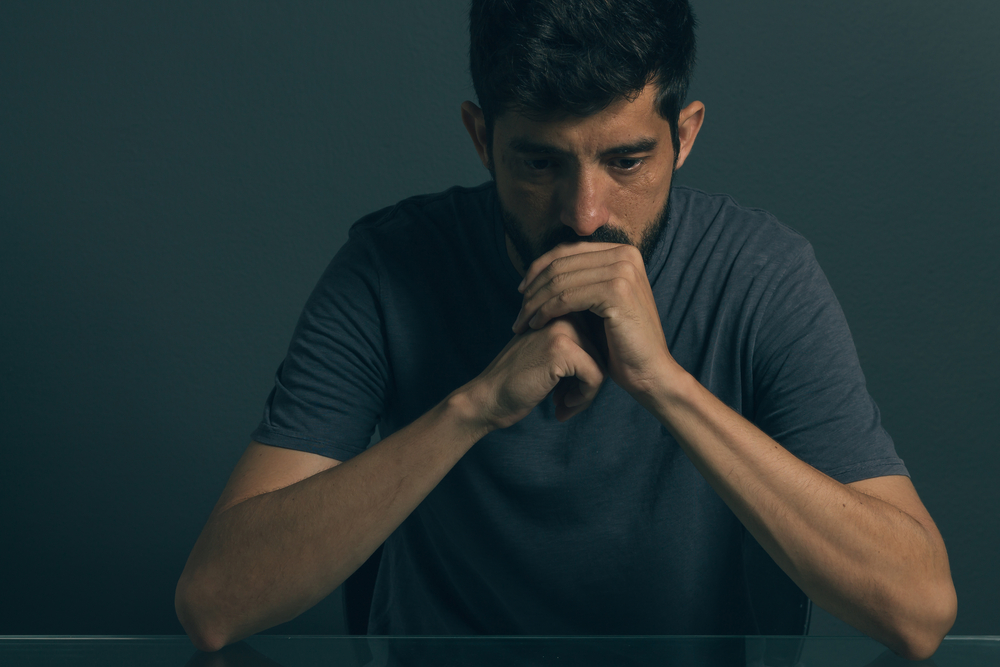Navigating grief is hard enough without making decisions that can compound your pain. While there’s no “right” way to grieve, here are some actions that could make your healing journey more difficult.
1. Rushing to Clear Out Their Belongings

While well-meaning friends might encourage you to “move on” by clearing out your spouse’s things, there’s no universal timeline for this process. Some people need their partner’s items around them for comfort during early grief, while others find it too painful. Keeping their clothes in the closet or their toothbrush in the bathroom isn’t holding you back—it’s okay to maintain these connections until you’re truly ready to let go. Your grieving brain needs time to adjust to the new reality before making permanent decisions about belongings.
2. Making Promises You’ll Regret

In the raw early days of grief, you might make sweeping declarations or promises about never dating again, always living in the same house, or other permanent decisions. Grief can push you to make commitments to your late spouse’s family that become burdens later. These promises, while well-intentioned, can become emotional anchors that hold you back from healing. You deserve the freedom to let your grief journey unfold naturally, without being bound by promises made in moments of intense pain.
3. Making Financial Decisions Under Pressure

Your altered emotional state can lead to poor money choices, from impulsive spending to hasty investment changes. Financial advisors might pressure you to make immediate decisions about insurance payouts or investments. Your spouse’s death may require some immediate financial attention, but most decisions can and should wait until you’re thinking more clearly. Grief can trigger both reckless spending as a distraction and extreme frugality from fear. Take care of immediate needs but postpone major financial moves until you’ve gotten professional advice and your emotions have stabilized.
4. Letting Others Control Your Grieving Process

Friends and family often have strong opinions about how you should grieve and when you should “move on.” They might pressure you to socialize before you’re ready or criticize you for not crying enough. Your grief journey is uniquely yours, and no one else gets to dictate its timeline or expression. Some days you might laugh, others you might cry, and both are perfectly okay. Remember that those who try to control your grieving process are often uncomfortable with their own feelings about death and loss.
5. Making Permanent Changes to Your Appearance

Drastic haircuts, impulse tattoos, or other major appearance changes might seem like a way to mark your new reality. While the urge to physically manifest your internal transformation is understandable, permanent changes made in grief can become regrets later. Your appearance can feel like the only thing you can control when everything else feels chaotic. Give yourself time to adjust before making any permanent modifications to your body or appearance.
6. Rushing Through the Legal Process

While certain legal matters need prompt attention, rushing through estate settlement can lead to costly mistakes. Pressure from family members or financial institutions might make you feel like everything needs immediate attention. Most legal matters have reasonable timeframes that allow for careful consideration. Taking time to understand your options and get proper legal advice can prevent future complications. Remember that grief brain is real and can affect your ability to process complex legal decisions.
7. Avoiding Your Spouse’s Family

Even if relationships were strained before, completely cutting ties with in-laws can add another layer of loss to your grief. These relationships might need redefinition, but they can provide valuable connections to your spouse’s memory. Your in-laws are also grieving, though their loss is different from yours. Maintaining appropriate boundaries while keeping some connection can be healing for everyone involved.
8. Making Comparisons to Others’ Grief

Every loss is unique, and comparing your grief journey to others’ can create unnecessary guilt or pressure. You might feel like you’re grieving “wrong” because your experience differs from what you’ve seen in movies or heard from other widowed people. Some days might feel surprisingly normal while others knock you flat, and that’s perfectly natural. Your relationship was unique, so your grief will be too.
9. Rushing to Get Rid of Pain

Trying to speed through grief or numb the pain with alcohol, excessive work, or other distractions only postpones necessary emotional processing. The instinct to escape the pain is natural, but avoiding grief can lead to complicated emotional issues later. You might feel pressure to “be strong” or “get over it,” but grief needs time and attention to heal properly. Short-term distractions can become long-term problems if they prevent you from processing your loss.
10. Being Too Hard on Yourself

Grief can make simple tasks feel impossible, and you might berate yourself for not handling things better. You might feel guilty about laughing at a joke or having a good day. Self-judgment about your grief responses can create an additional burden during an already difficult time. Remember that there’s no perfect way to handle loss, and whatever you’re feeling is valid. Extending the same compassion to yourself that you’d offer a grieving friend can help ease the journey.
11. Neglecting Your Health

Many widowed people find themselves skipping meals, developing irregular sleep patterns, or forgetting important medications. The stress of grief already taxes your immune system, and poor self-care can lead to significant health issues. You might feel like taking care of yourself doesn’t matter anymore, but your spouse would want you to stay healthy. Simple routines like regular meals and basic exercise can provide crucial structure during chaotic emotional times.
12. Making Major Life Changes Immediately

The urge to start fresh can be overwhelming, but rushing into big decisions often leads to regret. Your judgment is naturally clouded in the early stages of grief, making it a dangerous time to sell your house, quit your job, or move to a new city. Your brain is literally operating differently under the weight of loss, affecting your ability to make sound long-term choices. Give yourself at least a year before making any life-altering changes unless absolutely necessary.
13. Isolating Yourself Completely

Grief can make you want to curl up alone and shut out the world, but extended isolation often deepens depression. While you need time to process your loss privately, completely cutting off friends and family removes your support system when you need it most. Isolation can lead to harmful thought patterns going unchecked and depression taking deeper root. Even minimal social contact can help maintain your connection to life and hope.
14. Dating Too Soon

While loneliness can be crushing, jumping into dating before you’re ready often creates more pain. Your grief might make you vulnerable to people who don’t have your best interests at heart. Early relationships after loss often serve as band-aids for grief rather than genuine connections. You need time to rediscover who you are as an individual before trying to connect romantically with someone new. Moving too quickly into dating can also strain relationships with family and friends who are still processing the loss themselves.
15. Avoiding Professional Help

Many people view seeking grief counseling as a sign of weakness or failure to cope. The stigma around mental health support prevents many grieving spouses from getting help they desperately need. Professional guidance can provide crucial tools for processing grief in healthy ways. A good therapist can help you navigate complicated emotions and identify unhealthy coping mechanisms before they become habits. Getting help isn’t admitting defeat – it’s giving yourself support during one of life’s hardest challenges.
16. Letting Social Media Pressure You

The pressure to publicly perform your grief on social media can create unhealthy patterns and expectations. You might feel obligated to post regular updates, share memories, or document your grief journey for others. Some people find themselves measuring the validity of their grief by the number of likes or comments on memorial posts. Social media can become an emotional crutch that prevents real-world processing and healing. The constant reminders through anniversary notifications and memory features might keep reopening wounds before they have a chance to heal properly.
17. Avoiding Joy Out of Guilt

Many grieving spouses torture themselves with guilt when they experience moments of happiness or laughter. You might catch yourself having a good moment, then immediately feel like you’re betraying your spouse’s memory by not being constantly sad. This self-imposed prohibition on joy can lead to a deeper depression and complicated grief. Your spouse loved you and would want you to find moments of light even in the darkness. Remember that experiencing happiness doesn’t mean you miss them any less or that their memory means less to you.








